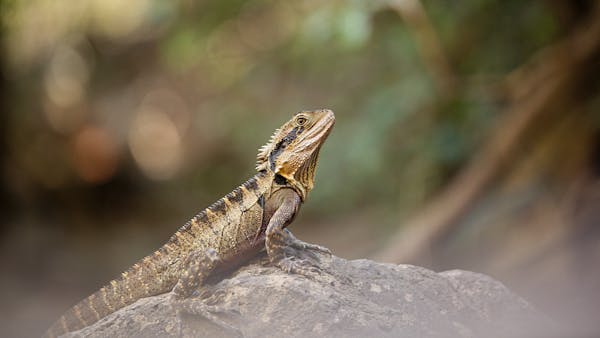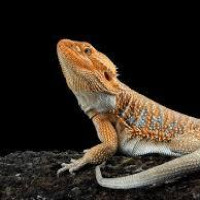A Well-Balanced Bearded Dragon Diet Plan for Health and Vitality

Strong 8k brings an ultra-HD IPTV experience to your living room and your pocket.
Bearded dragons, affectionately known as "beardies," are popular pets due to their docile nature and relatively simple care requirements. A crucial aspect of bearded dragon care is providing a well-balanced diet that promotes health and vitality. This article outlines a comprehensive diet plan to ensure your bearded dragon thrives.
Understanding Bearded Dragon Dietary Needs
Bearded dragons are omnivores, meaning they require a mix of animal and plant-based foods. Their dietary needs change as they grow, with juveniles needing more protein for growth and adults requiring a more balanced diet with a higher proportion of vegetables.
Juvenile Bearded Dragon Diet (0-12 months)
Protein (70-80% of diet):
Insects: Feed your juvenile bearded dragon a variety of insects such as crickets, dubia roaches, and black soldier fly larvae. These should be gut-loaded (fed nutritious foods) before offering them to your dragon.
Frequency: Offer insects 2-3 times daily. Ensure the insects are no larger than the space between the dragon's eyes to prevent choking.
Vegetables and Greens (20-30% of diet):
Leafy Greens: Collard greens, mustard greens, and dandelion greens are excellent choices. Avoid spinach and lettuce due to their low nutritional value.
Vegetables: Include squash, bell peppers, and carrots. Finely chop these vegetables to make them easier to eat.
Frequency: Offer fresh vegetables daily.
Adult Bearded Dragon Diet (12+ months)
Protein (20-30% of diet):
Insects: Continue to offer a variety of gut-loaded insects, but reduce the frequency to 2-3 times per week.
Other Protein Sources: Occasionally offer small amounts of cooked lean meats, boiled eggs, or commercial bearded dragon pellets.
Vegetables and Greens (70-80% of diet):
Leafy Greens: Maintain a staple of collard greens, mustard greens, and dandelion greens.
Vegetables: Continue to offer a variety of chopped vegetables like squash, bell peppers, and carrots.
Fruits: Offer fruits such as blueberries, strawberries, and mangoes sparingly due to their high sugar content.
Frequency: Provide fresh vegetables and greens daily, with fruits offered once or twice a week as a treat.
Supplements
Calcium: Dust insects and vegetables with a calcium supplement without vitamin D3 for juveniles (5-6 times a week) and with vitamin D3 for adults (2-3 times a week).
Multivitamins: Use a reptile multivitamin supplement once a week to ensure your bearded dragon receives all necessary nutrients.
Hydration
While bearded dragons obtain much of their water from food, always provide a shallow dish of fresh water in their enclosure. Misting vegetables before feeding and occasional misting of the dragon itself can help with hydration.
Feeding Tips
Variety: Offer a diverse range of foods to prevent nutritional deficiencies and keep your dragon interested in their meals.
Observation: Monitor your dragon's weight and health regularly. Adjust the diet if you notice any changes in their behavior or physical condition.
Avoid: Steer clear of feeding your dragon wild-caught insects, avocados, rhubarb, and any insects that glow (such as fireflies), as these can be toxic.
Conclusion
A well-balanced diet is crucial for the health and vitality of your bearded dragon. By providing a mix of proteins, vegetables, and occasional fruits, along with proper supplements and hydration, you can ensure your beardie leads a long, healthy, and happy life. Remember to adapt their diet as they grow and always consult with a reptile veterinarian for any specific dietary concerns
Note: IndiBlogHub features both user-submitted and editorial content. We do not verify third-party contributions. Read our Disclaimer and Privacy Policyfor details.


